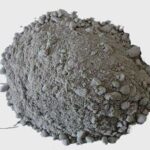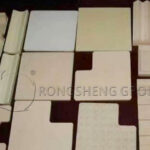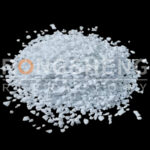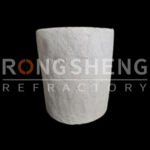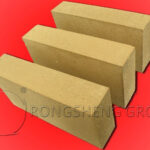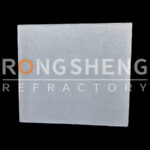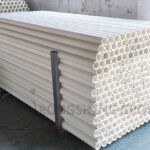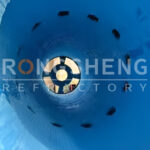Refractory Mortar for Sale Description
Refractory mortar for sale is a kind of joint material used for the masonry of shaped refractory bricks, it is usually used by troweling method. Refractory mortar is pasty fluid contains large ammout of solid particles. The main compositions are refractory fines, water or liquid bonder and additives such as dispersant, plasticizer, stabilizer or water retaining agent. The mass ratio of solid and liquid components is about (70~75)/(30~25), while the volume ratio is about (35~50)/(65~50), which varies with the density of the fines.
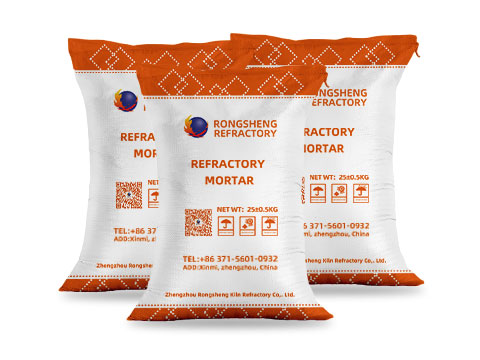
Generally speaking, the chemical property of refractory mortar should be similar to the refractory bricks to be masoned, therefore, the classification of refractory mortar is the same as refractory bricks. Refractroy mortar are usually divided into silica refractory mortar, semi silica refractory mortar, clay refractory mortar, high alumina refractory mortar, corundum refractory mortar, zircon refractory mortar, magnesia refractory mortar, magnesia alumina refractory mortar, magnesia chrome magnesia mortar, carbon refractory mortar, silicon carbide refractory mortar and so on. By the liquid property, refractory mortar can also be divided into a hydrous mortar and non-hydrous mortar. Recently, a new type of dry refractory mortar without liquid are invented. Besides, by the function, refractory mortars are divided into insulating refractory mortar, shrinkage proof refractory mortar and buffering refractory mortar, etc. In this article, let us know which of two types of refractory mortar, as well as their physical and chemical indicators.
1. Silica Refractory Mortar
Silica refractory mortar is made from silica powder, silica brick powder, plastic clay, bonding agent, and additives. The principal crystalline phase of silica powder are β quartz, which will have phase transformation during heating, so its volume is not stable. Silica brick powder is made by high-temperature sintered silica bricks or used silica bricks, and grinded into granule. So the proper ratio of silica powder and silica bricks powder can improve the refractoriness under load and the linear change rate of the refractory mortar.
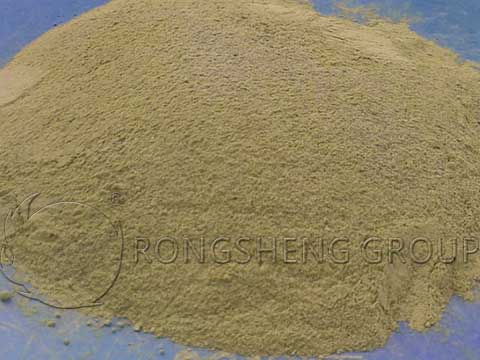
Silica refractory mortar is mainly used to mason blast furnace, hot blast furnace, coke furnace carbonization chamber, glass tank, spinal top of glass kiln, etc. Different kinds of refractory mortar are required for different kinds of furnaces and parts, their physicochemical indexes also varies greatly. For example, silica refractory mortar used in hot blast furnace should contain more than 94% of SiO2, 0.2MPa refractoriness under load (RUL) temperature should be higher than 1600℃. Silica refractory mortar used in glass kiln should contains 94~96% of SiO2, RUL temperature should between 1600~1620℃, while the SiO2 content for coke furnace is between 85%~92%, RUL temperature is between 1420℃ and 1500℃.
Physicochemical Indexes Of Silica Refractory Mortar
| Item | Hot blast furnace | Coke furnace carbonization chamber | Glass kiln |
| Refractoriness℃ ≥ | 1690 | 1670 | 1710 |
| Cold crush strength (1400℃,3h) MPa ≥ | 3.0 | 3.0 | 3.0 |
| cementation time/ min | 1-2 | 1-2 | 1-2 |
| Granularity ≥0.5mm % | >1 | <3 | <2 |
| SiO2% | 94 | 92 | 96 |
| Fe2O3 % < | 1.0 | — | 0.7 |
| 0.2 Mpa refractoriness under load ℃ > | 1600 | 1500 | 1620 |
2. Aluminum Silicate Refractory Mortar
Aluminum silicate refractory mortar includes clay refractory mortar, mullite refractory mortar, and high alumina refractory mortar, and so on. Based on material type, aluminum silicate refractory mortar raw materials are clay clinker fines, sintered or fused mullite fines, high alumina bauxite clinker fines, sintered or fused corundum fines, mixed with soft clay, bonder and additives in proper ratio. The function of soft clay is to improve the workability of the mortar, such as spreadability and adhesion ability, etc. Silica micro powder can be used to replace soft clay to enhance workability, as well as to decrease the sintering temperature.
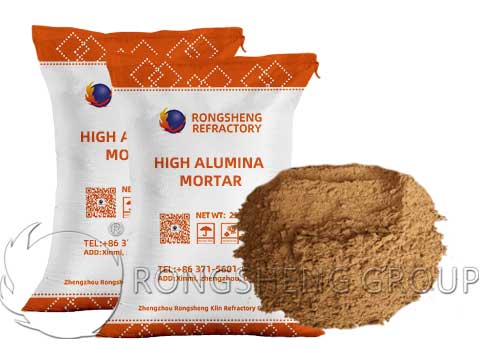
To improve the strength of aluminum silicate refractory mortar, bonding agent is needed. There are two types of bonders: 1) silicate series, i.e., water glass with different proportion of (SiO2/Na2O). 2) Phosphate series, such as acidic aluminum phosphate and polyphosphate, etc. The quantity of bonder can be adjusted by the application requirement. Generally speaking, the more the bonder, the higher the sintered bonding strength. But under high temperature, the , because the bonder can cause the increase of liquid phase.
Physicochemical property of phosphate bonded aluminum silicate refractory mortar
| Item | Clay mortar | High alumina mortar | Mullite mortar | Corundum mortar |
| Refractoriness℃ ≥ | 1750 | 1790 | 1790 | 1850 |
| Modulus of rupture (Sintered) MPa ≥ | 5.9 (1200℃) | 5.9 (1400℃) | 5.9 (1500℃) | 5.9 (1500℃) |
| cementation time/ min | 1-2 | 1-2 | 1-2 | 1-2 |
| Granularity ≥0.5mm % | ≤1 | ≤1 | ≤1 | ≤1 |
| Al2O3 % ≥ | 45 | 70 | 70 | 90 |
| Refractoriness under load ℃ ≥ | 1200 | 1300 | 1500 | 1700 |
Why Choose RS kiln Refractory Mortar for Sale
Rongsheng refractory manufacturer locates in Xinmi city where abounds in refractory mineral and is the production base for high quality, favorable price refractory raw material and finished products. Since established in the early 1990s, Rongsheng refractory material factory has been attaching importance to continuous innovation and development, now Rongsheng kiln Refractory has become a comprehensive enterprise in the refractory material industry, covering metallurgy, building materials, electric power, chemical industry, etc. RS Kiln Refractory main products have been exported to many countries such as Russia, South Africa, Kazakhstan, Philippines, Chile, Malaysia, Uzbekistan, Indonesia, Vietnam, Kuwait, Turkey, Zambia, Peru, Mexico, Qatar, etc.
If you have any questions or want to know more information about our refractory products, please feel free to contact us.
